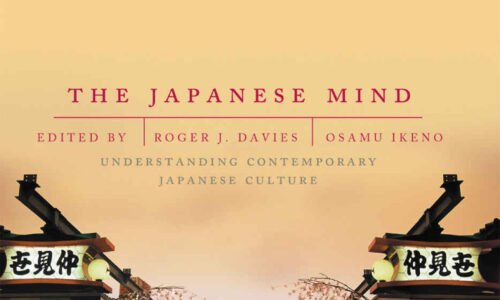The Japanese Mind: Understanding Contemporary Japanese Culture
Last updated:
Introduction to The Japanese Mind: A Course in Cultural Concepts
Welcome to this course! Over the next few weeks, we will be diving into one of the most insightful guides to contemporary Japanese culture: The Japanese Mind: Understanding Contemporary Japanese Culture by Roger J. Davies and Osamu Ikeno.
This isn’t a history book or a language textbook; it is a conceptual deep dive. Each of the twenty-eight chapters focuses on a single, powerful Japanese term—a word that encapsulates an entire cultural value, social custom, or way of thinking. These concepts are the invisible rules of Japanese society.
Why Study These Concepts?
Understanding these terms is the key to moving beyond surface-level observations—the cherry blossoms and the bullet trains—to grasping the psychological and social structures that drive behavior in Japan.
For example, when we discuss Amae (the concept of depending on the benevolence of others), we begin to understand why certain relationships are so profoundly interdependent. When we discuss Honne and Tatemae (private truth vs. public stance), we unlock the logic behind indirect communication.
By examining these concepts, we will:
- Decode Japanese Communication: Learn why ambiguity (Aimai) and silence (Chinmoku) are often valued more than direct, verbal clarity.
- Analyze Social Hierarchy: Understand how rules of seniority (Sempai-Kōhai) and the group-first mentality (Shūdan Ishiki) organize nearly every facet of life, from school clubs to corporate offices.
- Explore Aesthetic and Moral Values: Study the quiet, simple beauty of imperfection (Wabi-Sabi) and the fierce determination and diligence required by society (Gambari).
- Bridge Cultural Gaps: Recognize the challenge inherent in the Uchi to Soto (inside/outside) distinction and how it influences interactions with the rest of the world.
Course Structure: A Concept a Day
This course is designed to be highly participatory. We will treat each chapter as a self-contained unit of cultural understanding. For every concept, we will follow a simple structure:
- Definition & Origin: We will first clearly define the term and trace its roots, often back to Zen Buddhism, Confucianism, or agricultural history.
- Modern Manifestation: We will then look at how this concept plays out in modern life—in business (Nemawashi), family (Ie System), and personal relationships (Hedataru to Najimu).
- Critical Discussion: Finally, we will use the discussion questions provided in the book (the ones I summarized for you previously!) to analyze the concept’s pros and cons for contemporary Japan and compare it to values in other parts of the world.
This text provides the essential toolkit for anyone seeking to engage meaningfully with Japanese culture, whether you are here in Nagoya, or studying from abroad. Get ready to challenge your own assumptions about how a complex society operates.
Curriculum
- 28 Sections
- 56 Lessons
- 10 Weeks
- Aimai: Ambiguity and the Japanese2
- Amae: The Concept of Japanese Dependence2
- Amakudari: Descent from Heaven2
- Bigaku: The Japanese Sense of Beauty2
- Bushidō: The Way of the Warrior2
- Chinmoku: Silence in Japanese Communication2
- Danjyo Kankei: Male and Female Relationships in Japan2
- The Dō Spirit of Japan2
- Gambari: Japanese Patience and Determination2
- Giri: Japanese Social Obligations2
- Haragei: An Implicit Way of Communicating in Japan2
- Hedataru to Najimu: Japanese Personal Space2
- Honne to Tatemae: Private vs. Public Stance in Japan2
- The Japanese Ie SystemSummary2
- Iitoko-Dori: Adopting Elements of Foreign Culture2
- Ikuji: Childrearing Practices in Japan2
- Kenkyo: The Japanese Virtue of Modesty2
- Kisetsu: The Japanese Sense of the Seasons2
- Nemawashi: Laying the Groundwork in Japan2
- Omiai: Arranged Marriage in Japan2
- Otogibanashi: Folktales of Japan2
- Ryōsaikenbo “Good Wives and Wise Mothers”: The Social Expectations of Women in Japan2
- Sempai-Kōhai: Seniority Rules in Japanese Relations2
- Shūdan Ishiki: Japanese Group Consciousness2
- Sōshiki: Japanese Funerals2
- Uchi to Soto: Dual Meanings in Japanese Human Relations2
- Wabi-Sabi: Simplicity and Elegance as Japanese Ideals of Beauty2
- Zōtō: The Japanese Custom of Gift Giving2


